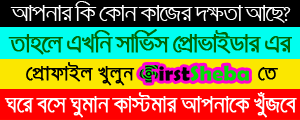In the intricate world of language, words often serve multiple purposes, lending themselves to a variety of interpretations and usages. Among the myriad of terms that traverse different contexts, “beat” and “flog” stand out as powerful verbs with a shared thread of meaning: the act of striking or inflicting punishment. But beyond their definitions, these words have found their way into puzzles and linguistic games, sparking curiosity and creativity among word enthusiasts.
One of the fascinating aspects of the English language is its extensive vocabulary, particularly in the realm of synonyms. The words “beat” and “flog” are often used interchangeably in colloquial language, yet each carries its own unique nuances. “Beat” generally refers to striking repeatedly, often used in a more abstract sense—like beating a record or beating the odds. On the other hand, “flog” evokes a more visceral image, historically associated with punishment or reprimand, primarily through the use of a whip or similar instrument.
Crossword Clues and Their Responses
Crossword puzzles present an intriguing challenge, inviting players to engage with language in a playful manner. A recent clue, “beat or flog,” hints at a three-letter answer, prompting solvers to delve into their lexicon for the correct term. The solution, “tan,” serves as a reminder of the multifaceted nature of these verbs. In one sense, “tan” refers to the action of striking, particularly in the context of delivering a blow, while in another, it suggests the idea of tanning skin, often a result of being struck by sunlight or, metaphorically, a form of punishment.
However, the exploration doesn’t end with “tan.” The crossword world expands further with alternatives such as “lam,” which carries a similar connotation of beating or fleeing, and “whip,” a more direct term for the act of striking. Such variety reflects the richness of the English language, allowing for creative expression in both casual conversation and formal writing.
The Lexicon of Beating and Flogging
Delving deeper into the synonyms associated with “beat” and “flog,” one encounters an array of terms, each offering a unique flavor to the language. “Larrup,” a six-letter word, emerges as an archaic synonym that evokes a sense of heavy punishment, while “lambast” captures the notion of vigorous criticism or chastisement, particularly in a figurative sense. “Scourge,” on the other hand, illustrates the dual nature of these terms—denoting both a physical whip and the act of inflicting severe punishment or distress.
Even more intriguing is the word “stripe,” which serves as both a noun and a verb, denoting a mark or band of color, as well as a reference to the act of whipping. This duality adds depth to the language, inviting speakers and writers to play with meanings and create nuanced expressions.
Historical Context and Evolution
The historical context of these words provides a fascinating glimpse into their evolution. The verb “flog” has its roots in the Old English word “floga,” meaning to whip or lash. This connection to punishment highlights the harsher aspects of language, where words reflect the societal norms and practices of their time. Conversely, “beat” stems from a more general Germanic origin, emphasizing the broader concept of striking or hitting.
Over time, the connotations of these words have shifted. While “flog” may still carry a sense of punishment, it is often used in a more metaphorical sense today, such as “flogging a dead horse” to imply a futile effort. “Beat,” meanwhile, has transcended its original meaning to encompass various contexts, from sports to music, showcasing its versatility in modern language.
The Intersection of Language and Culture
As with many words in the English language, “beat” and “flog” intersect with cultural practices and idiomatic expressions. For example, the phrase “beat the spread” in betting contexts captures the idea of overcoming odds, while “flogging a product” refers to the aggressive marketing tactics employed to sell items. Such expressions not only enrich the language but also reveal the cultural values and practices that shape how we communicate.
The playful nature of crosswords further emphasizes this intersection. Players are encouraged to think laterally, making connections between words that may not seem immediately obvious. The clue “beat or flog” exemplifies this challenge, urging solvers to navigate their mental dictionaries and consider both the literal and figurative implications of the terms.
The Joy of Wordplay
Engaging with terms like “beat” and “flog” in crossword puzzles exemplifies the joy of wordplay. Language enthusiasts revel in the opportunity to explore the subtleties of meaning, alliteration, and assonance as they seek solutions. This playful approach to language cultivates a deeper appreciation for vocabulary, encouraging individuals to embrace the richness of their linguistic heritage.
In a world increasingly dominated by brevity and digital communication, the nuanced exploration of words offers a refreshing reminder of the beauty inherent in language. The interplay between synonyms, idioms, and cultural expressions fosters a dynamic environment where creativity flourishes.
Beyond the Crossword: Broader Implications
While the immediate context of “beat or flog” may seem limited to crossword puzzles, the broader implications of such terms resonate throughout language and culture. The exploration of synonyms unveils a tapestry of connections, demonstrating how words can shape our understanding of complex ideas and experiences.
As we engage with language, we participate in an ongoing dialogue that transcends individual expression. The rich vocabulary surrounding “beat” and “flog” encourages us to reflect on our historical roots, cultural practices, and the evolving nature of communication. Each word carries the weight of its history, contributing to a larger narrative that connects us all.
In this context, the challenge of solving crossword puzzles becomes more than a mere game. It transforms into an intellectual pursuit, inviting players to immerse themselves in the richness of language and engage in a dialogue that spans time and culture. As we beat and flog our way through the intricacies of language, we celebrate the beauty of expression and the power of words to evoke emotion, convey meaning, and foster connection.








